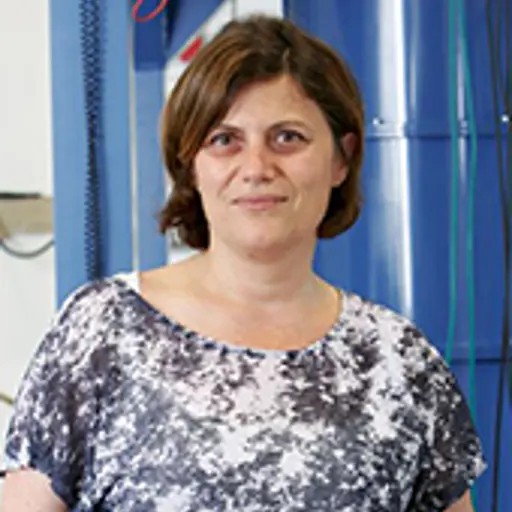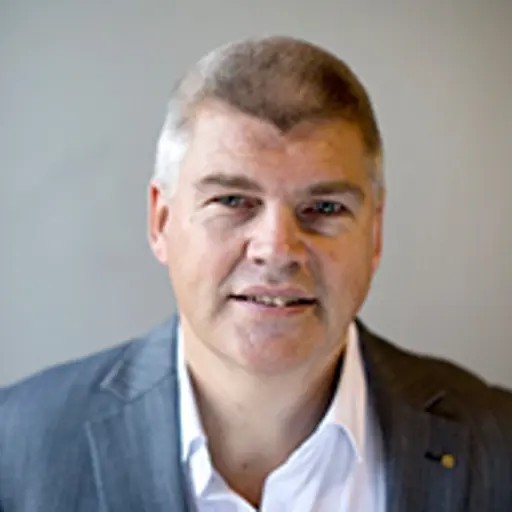
Floriana Lombardi, Peter Andrekson and Per Delsing, all active at MC2, are three of the eleven Chalmers researchers who will be appointed Wallenberg Scholars in 2024. With the grants from the Knut and Alice Wallenberg Foundation, they may now push the borders of knowledge in high-temperature superconductors, space communication and qubits with longer coherence times.
On Tuesday, March 26, the Knut and Alice Wallenberg Foundation presented the 118 Swedish researchers who, starting this year, are part of the Wallenberg Scholars program. The program was initiated in 2009 and aims to give the country's leading researchers space for free research and resources to motivate them to stay in Sweden. Together, they receive 2.1 billion SEK - up to 18 - 20 million each - in research funding over a five-year period. Eleven of this year's selected are active at Chalmers, three of whom are based at the Department of Microtechnology and Nanoscience: Floriana Lombardi, Professor quantum materials and nanodevices, Peter Andrekson, Professor of photonics, and Per Delsing, Professor of quantum technology.
“I am thrilled and deeply honored to have been chosen as a Wallenberg Scholar. This selection represents a high level of trust in the research I have been conducting over the past years. This prestigious recognition not only grants great freedom in research tasks but also inspires me to take daring risks in pursuing my passions and dreams,” says Floriana Lombardi, one of the four Chalmers researchers to be named a Wallenberg Scholar for the first time.
Per Delsing and Peter Andrekson have both been part of Wallenberg's research program in a number of years and agree that the grant opens up a bolder approach to research.
“Fantastic! I am very honored to continue to be a Wallenberg Scholar. When you become a Scholar, you feel a lot of trust from KAW, and you can take bigger risks and tackle really difficult research questions,” says Per Delsing, who has been a Scholar since 2013.
“It feels fantastic! This is one of the best and finest personal grants you can get in Sweden! The grant enables a great deal of freedom to dare to take risks in research because it runs over quite a long time,” says Peter Andrekson, shortly after receiving the news.
High temperature superconductors, space communication and qubits
As a Wallenberg Scholar, Floriana Lombardi, Professor of quantum materials and nanodevices at Chalmers University of Technology, wants to explore new approaches to understanding the mechanisms of high-temperature superconductors based on copper oxide. In her research, she will use the latest techniques for two-dimensional materials to explore and manipulate the many layers that this type of high-temperature superconductor is made up of - hoping to gain ground-breaking insights in the field.
“New breakthroughs in condensed matter have been achieved by studying Moiré physics in 2D materials. I intend to take inspiration from these results and apply the same principles to high-temperature superconductors. The idea is to generate new physical phenomena and states of matter, which can potentially shed light on the elusive mechanism behind superconductivity at high temperatures. I am confident that this research can pave the way for a higher superconducting transition temperature closer to room temperature,” says Floriana Lombardi.
Focusing on fiber optic communication, Peter Andrekson has a total of nine years’ experience as a Wallenberg Scholar. During these years, he has developed an optical amplifier enabling communication over very long distances in space. As he now receives the grant for the third time, he believes several important steps might be taken in the field.
“I expect that we will take great steps forward towards practical solutions for various applications such as laser-based communication over extremely long distances, to Mars, for example. But also, in LIDAR for studies of the Earth's atmosphere, quantum optics, and perhaps tomography and spectroscopy. Now is the time to search for some really talented post-docs!” says Peter.
During his first period as a Wallenberg Scholar, Per Delsing and his research group succeeded in something that no one had done before: listening and talking to an atom. It opened the door to a whole new field – quantum acoustics. When he now receives the grant again, he wishes to explore new kinds of qubits that could perform operations and manage algorithms for a significantly longer time than today. The information in current qubits is quickly lost, and qubits with longer so-called coherence times would be of great importance to the progress of quantum computers.
“In my project, I will study two topics. Firstly, how cosmic rays affect our qubits, and secondly, I will continue developing the quantum-limited amplifiers used for qubit readouts,” says Per Delsing.
Read more about the Wallenberg Scholars 2024 (in Swedish)
- Full Professor, Quantum Device Physics, Microtechnology and Nanoscience
- Full Professor, Photonics, Microtechnology and Nanoscience
- Full Professor, Quantum Technology, Microtechnology and Nanoscience


